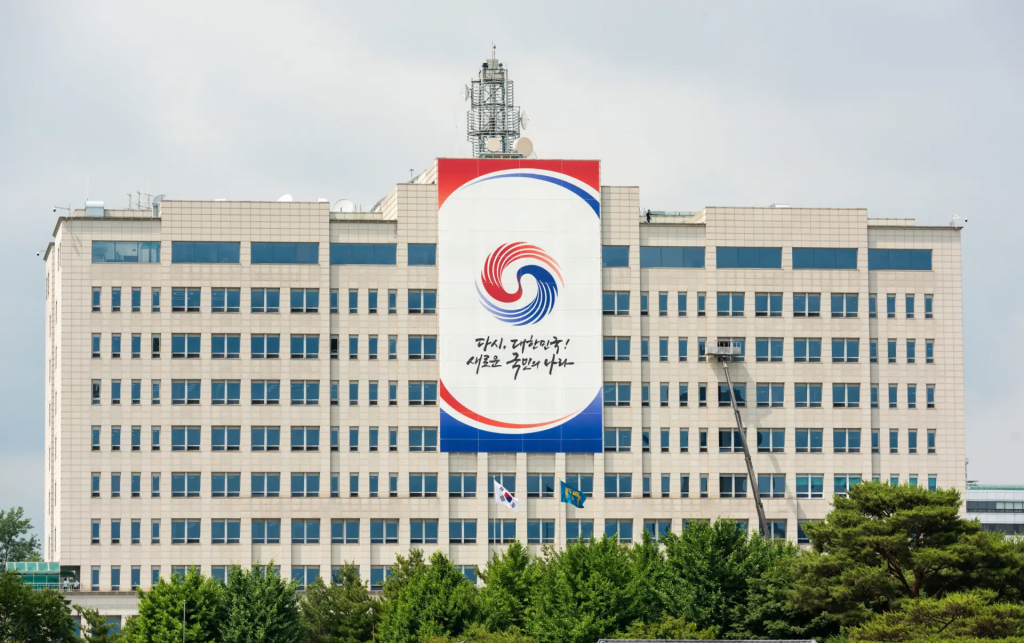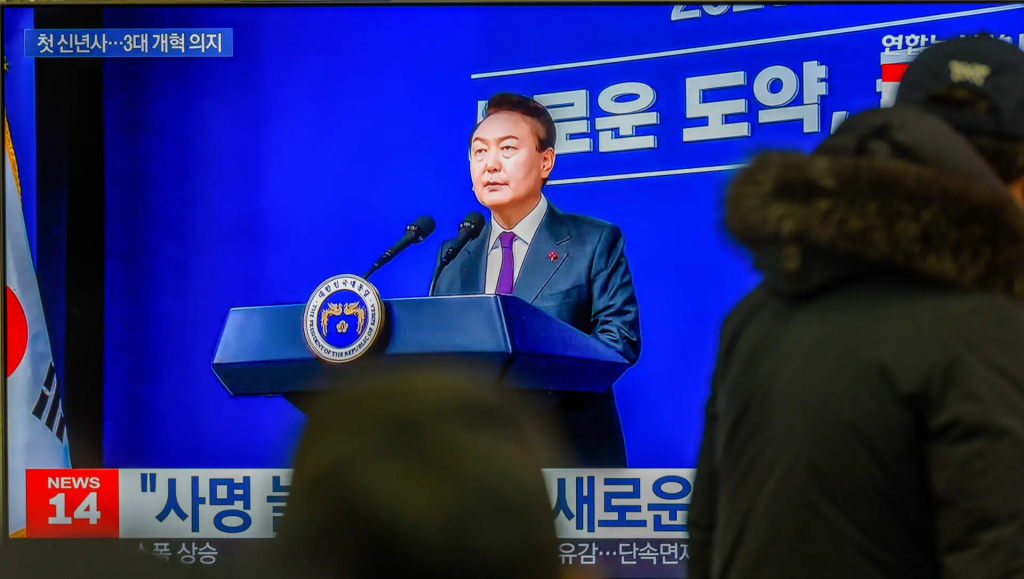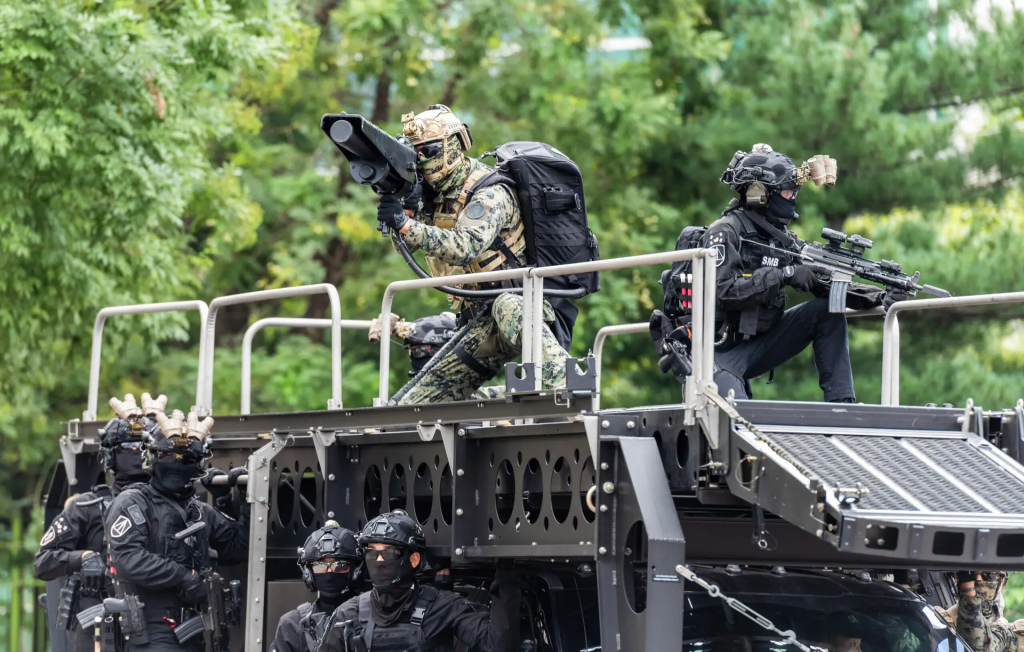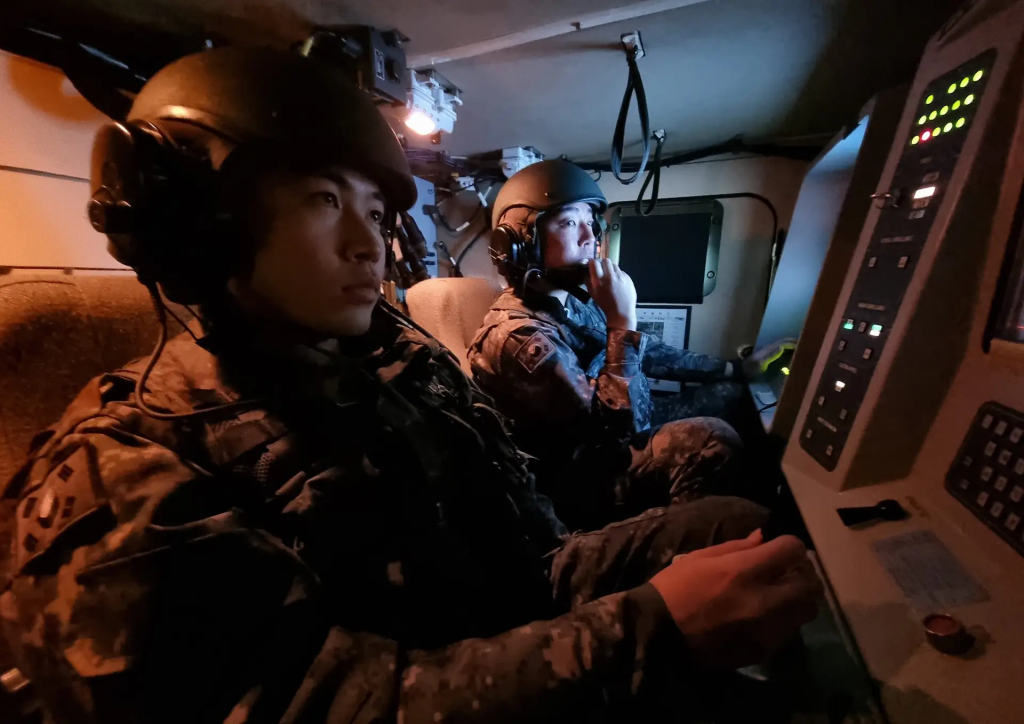A North Korean drone briefly entered a no-fly zone over South Korea’s presidential office last week, Seoul’s military said on Thursday, fueling criticism of the South’s air defenses.
The drone was one of five North Korean drones that infiltrated South Korea on December 26, prompting South Korean military forces to deploy fighter jets and helicopters. The military was blamed for failing to shoot down the drones flying over the South for hours.

The South Korean Joint Chiefs of Staff (JCS) initially denied that one of the drones crossed a no-fly zone near President Yoon Suk-office yeol’s in Seoul but confirmed the violation on Thursday.
A JCS representative stated that their analysis had changed after examining the military’s readiness posture in light of the latest intrusion.
According to the JCS, the North’s unmanned aircraft did not pass directly over Yoon’s office in Yongsan.

According to Yoo Sang-bum, a member of the legislative intelligence committee, the potential of the drone photographing the presidential compound, which also contains the JCS headquarters, cannot be ruled out.
According to Yoo, North Korea possesses roughly 500 unmanned aerial vehicles of 20 different sorts, most of which contain a small number of self-destructing assault devices.
“A movement of developing medium- and large-sized drones for long-distance reconnaissance has been detected, but it appears to be at an early stage, and securing technologies such as high-performance detection sensors would be key,” Yoo said.

The border incursion has generated criticism of South Korea’s air defenses at a time when the North’s nuclear and missile threats are rising.
The defense ministry has stated that it will establish a new drone unit to boost its surveillance and reconnaissance capabilities, particularly against smaller drones.
Yoon has threatened to terminate a 2018 inter-Korean military treaty if the North violates its airspace again.

Despite UN Security Council resolutions, North Korea has developed missiles and nuclear weapons while remaining isolated. Moreover, due to the fact that the 1950–1953 battle between North and South Korea concluded in a cease-fire rather than a peace treaty, the two great powers are currently at war.


